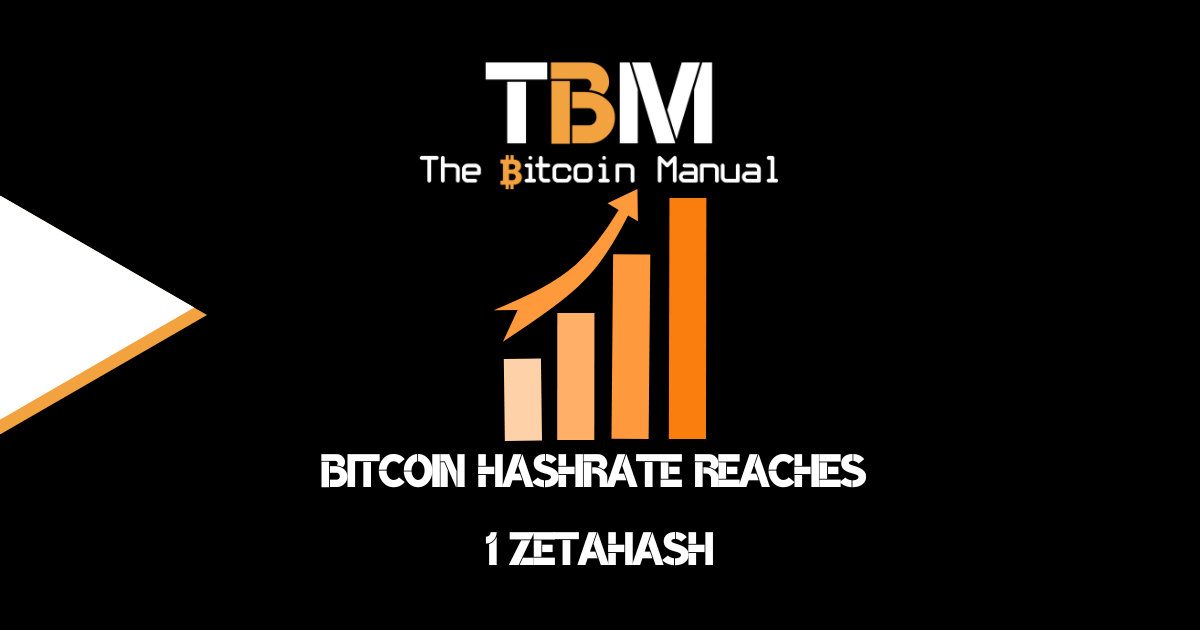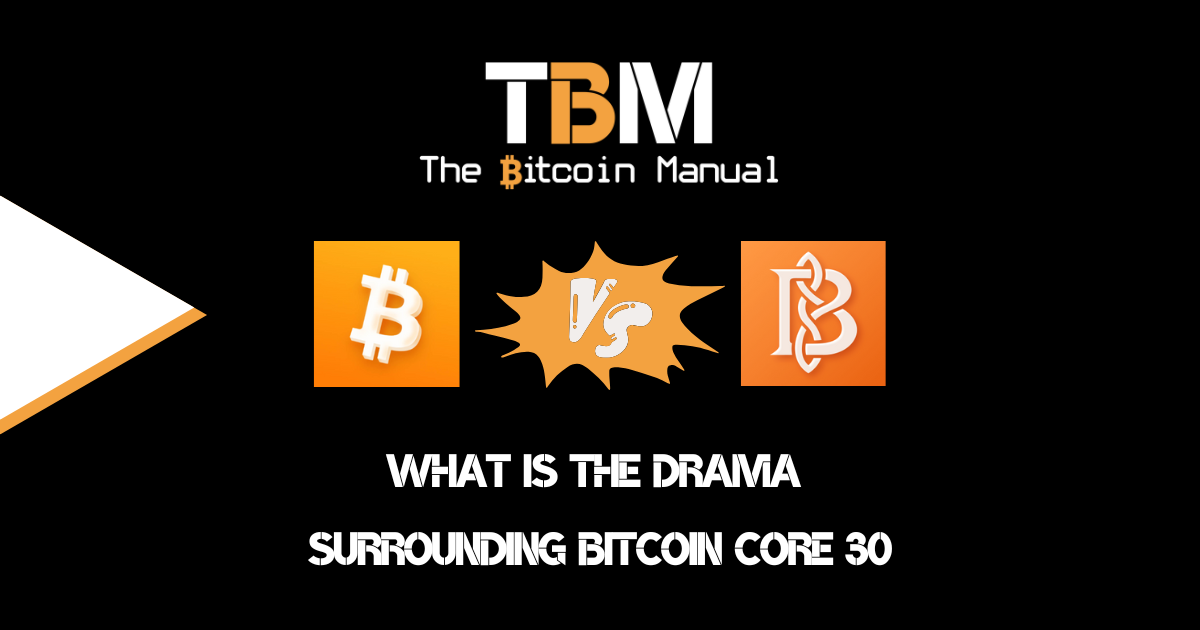Getting into Bitcoin requires an open mind and a sizable shift in your way of thinking; it asks you to challenge concepts like ownership, sovereignty, risk management, scarcity, trust in third parties, and so much more. One of the first hurdles one faces is getting to grips with the idea of digital ownership and provable scarcity.
It seems counterintuitive, as far as we’ve known, digital products are something that can be replicated cheaply and at scale, so bringing the concept of a scarce digital medium takes a bit getting used to; how can Bitcoin be rare? Is it just a bunch of numbers on a ledger?
Bitcoin is secured with energy and economic incentives.
This is where the blockchain comes in and the army of distributed nodes that you and I can run on a simple device or an old laptop. The blockchain keeps a record of everyone’s balances while the nodes ensure everyone holds identical records.
As long as the network remains intact through all participants wanting to enforce the same rules, as we all benefit from it economically, everyone’s Bitcoin balance remains safe on the network. Bitcoin’s network is the most powerful computer network in the world and has never been hacked. The network also continues to grow as it uses more energy by attracting more miners to support it.
Having that kind of backing should assure anyone that self custody is the safest option. You would rather have private interaction with the Bitcoin network than using third-party services like an exchange.
Bitcoin is money without physical constraints.
Now that you understand Bitcoin is rare is unique, and you accept it has value, why would you leave your Bitcoin with another entity? I can understand why one keeps cash in the bank; it would be impractical to hold thousands or millions of paper currency in your home.
It would take up space and also make you a target for criminals. Physical wealth like precious metals and paper currency have that attack vector.
Bitcoin is built for self custody.
Bitcoin doesn’t have that; it dematerialises wealth, all you see is the representation in a wallet you have access to, and you can verify that balance by running a node.
You can store thousands, millions, even billions in a wallet, and it makes no difference to the storage capacity; all you need is your seed phrase, and that Bitcoin will be with you wherever you go.
Now, if something is designed to make private ownership easy, why do you resist the urge to do so?
The risk of third parties.
My Bitcoin journey, like many others, comes with hard lessons; hard money tends to expose any mistakes you make, and you learn to correct them very quickly or pay the price. When you first get into Bitcoin and cryptocurrency, it’s easy to lump all these tokens together, thinking they’re the same. Digital play money, an online casino where you’re simply switching around numbers to try and secure more fiat.
When you have that mindset, you tend to discount the actual value you’re holding in your wallet; it’s not real, you’ve never spent it, you never turned it into fiat; it’s all paper gains.
This is the mindset I had too, and I was one of those unfortunate people who didn’t listen to fellow Bitcoiners who preached not your keys, not your coins. I left my coins on an exchange, and I was hacked for my troubles; the exchange left me hanging, and this is and will continue to be an expensive lesson as the price of Bitcoin continues to rise.
Bitcoin is valuable.
If you accept Bitcoin has value, you have to admit that you need to take measures to protect that value. No one is going to take care of your money as well as you do. You worked damn hard for it; why would you let someone put their hands in your cookie jar?
I have spoken to several new Bitcoiners who still keep their money on an exchange and why they choose not to take ownership, and I thought I would tackle these objections one by one.
I don’t trust myself or am not tech-savvy.
The Bitcoin user experience continues to improve with new wallets and companies entering the space. We have seen a considerable improvement in user interfaces that are easy for the average person. It will take some time before it feels like a simple banking experience offered today, so some people will not feel comfortable using the network.
If you have Bitcoin, but you’re uneasy with the self custody option, then there are custody services that will help guide you through the process. They will help set up the wallet, show you how to manage your keys, and split your keys, so you always have backups should you lose your keys.
I am scared to move my Bitcoin.
The Bitcoin network confirms a block every 10 minutes, and after six confirmations, you are pretty sure your move is secure. An hour to verify your transaction can seem like an eternity for a new coiner. I know the nerve-wracking feeling of having your coins sitting up in the ether, wondering if you used the correct address.
That’s why we have block explorers and why you can run a node; you can monitor the process from start to finish if that helps put your mind at ease.
If you’re also nervous due to the wallet address formatting, that you may forget to paste it correctly, send a small test transaction first; if it confirms, you can repeat it with larger transfers.
I don’t have a storage plan.
Taking self custody doesn’t have to be a great migration, and you can take your time to migrate your Bitcoin as and when you feel comfortable. You can start by downloading a hot wallet, getting comfortable with key management, and learning to store your keys safely. Once you have your hot wallet set up, you can start to migrate your Bitcoin to this wallet and get to grips with the process.
Once your hot wallet continues to increase in size, you may want to consider getting a cold storage option where your keys are stored offline instead.
Later you can look at more secure setups like a multisig wallet or a secure physical seed phrase.
On-chain fees are too expensive.
Yes, Bitcoin fees can get privacy, you can continuously monitor the pricing via a block explorer and pick the ideal time for your transaction, but this won’t always be the case.
The Bitcoin on-chain fees will continue to increase over time, so you’ll need to learn alternative ways of moving your Bitcoin. If you’re stacking sats daily, you may want to extract your coins each month or each week.
If you’re not comfortable with that, you could extract your coins to a cheaper layer two solutions like the lightning or liquid network. You can consolidate your funds on the more inexpensive chain, and once you have a cost-effective amount, you can move it to the main chain.
Self custody is self-empowerment.
Taking control over your Bitcoin is a step all Bitcoiners should take once they are ready or once their stack gets to a considerable amount for you. Trusting institutions will continue to see people getting burned; as Jim Chanos says, we’re living in the golden age of fraud. While these companies may look legitimate and well run, you don’t know what their balance sheets look like, so why would you leave your money with these entities?
There is systemic risk in the financial system, and when the bill comes due, people will be begging for collateral without third-party risk, making your Bitcoin a honeypot of note. Don’t let others benefit from your hard work and willingness to save.
Having your Bitcoin in a wallet you own, you make these institutions come to you; they’ll have to grovel and offer you favourable rates for the use of your Bitcoin. Leaving it with them now, they’re getting to make money off your money where they dictate the terms.
Taking custody of your Bitcoin is an act of empowerment; it says I only keep my wealth in my hands and if you want access to my wealth, convince me otherwise.
It’s part of the steps to self-sovereignty, and it’s a more powerful statement than you think.





One Response
Another excellent article here Che. You pretty much covered all the arguments that I’ve also come across on my discussions with others about self-custody of ones sweet sats. Once you move those first sats over to cold storage, it is an empowering feeling that these are now all yours and no-one can take them away unless you dox yourself of course!